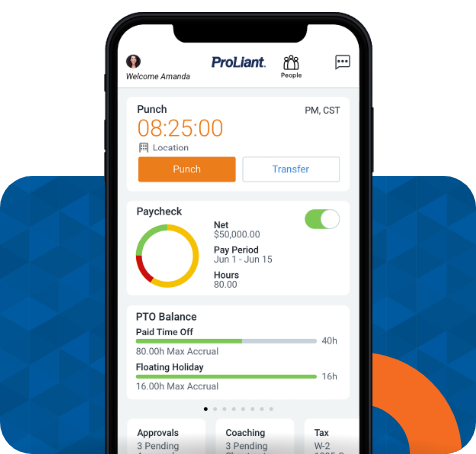As the Baby Boomer generation retires and Generation Z continues to enter the workforce, many industries are forced to make changes to attract new talent. The hospitality industry, for example, faces many unique challenges when it comes to attracting young workers who have both positive and negative views of the industry.
According to the American Hotel and Lodging Association (AHLA), the COVID-19 pandemic has taken the industry back more than an estimated ten years' worth of job growth. As a result, the hospitality industry needs the younger generation to fill in the gaps from the pandemic and take on positions left behind by those retiring, moving up into management, or leaving the industry altogether.
Traditionally, younger workers fill the hospitality industry's need for entry-level employees who are more willing to work long, odd hours. However, the emerging generation of young workers has expectations about their workplace experiences that will affect recruitment efforts and working conditions for the entire hospitality industry.
To understand more about the challenge of recruiting the emerging generation of hospitality employees, let's dive into who Generation Z is and what motivates this group.
Defining Generation Z
Generation Z includes people born from approximately 1994 to 2010, and the internet and advanced technology have been a part of their lives since they were born. When discussing workplace expectations and behaviors, Generation Z is often compared to Generation Y, a generation described as socially conscious, ambitious, impatient, and desiring immediate validation. And while Generation Z will have a lot of overlapping characteristics with Generation Y, there are some subtle differences researchers have put together to define Generation Z.
Researchers characterize this emerging generation of new employees as having self-confidence, embracing team spirit, seeking happiness at work, requiring assurances for the future, and desiring independence over authority. Others have also described Generation Z as individuals who are ready for hard work, expect quick upward movement in their career paths, and may lack specific skills expected of them. Essential workplace features that may be important to this generation include:
- Social media proficiency
- Multi-cultural experiences
- Regular feedback (over annual reviews)
- Honesty and integrity in leadership
- Face-to-face communication
- Flexibility
Like Generation Y, Generation Z values experiences and fulfillment over status and monetary goals. And while many individuals in this group may seek upward mobility and higher pay, it is often for the pursuit of independence and facilitating international travel and other life experiences.
Gen Z Attitudes About the Hospitality Industry
Research published in the International Journal of Hospitality Management found that Gen Z has a unique perspective when it comes to working in the hospitality industry. This research covered four aspects and identified the key points that influence the young generation's decision to work in hospitality:
- Positive attitudes: Cultural diversity, people industry, Glamorous, exciting, stable career, travel opportunities, fulfilling
- Perceived difficulties: Discrimination, health and safety, dealing with people, emotional labor, low pay, long hours, language proficiency
- Negative attitudes: Long hours, emotionally exhausting, low pay, strict
- Influence groups: Family, alumni, teachers, industry professionals, friends, education agents
The critical elements listed under these four points of interest help create a profile for the typical hospitality candidate from the emerging workforce. As Gen Z continues to enter the job market, recruiters in the hospitality industry will have to address these issues to attract talent.
7 Workforce Management Tips to Address the Hospitality Industry Issues Most Important to Gen Z
Recruiting Generation Z requires a bit of flexibility. However, looking at the four aspects and the responses from Generation Z individuals, it is clear what recruiters need to focus on when creating descriptions for job posts. Here are seven ways to appeal to Generation Z by addressing the issues most important to this group.
1 Highlight Job Satisfaction and Career Prospects in Job Descriptions
According to researchers, "Generation Z hospitality workers are not motivated by salary but rather on the job satisfaction and career prospects of the hospitality industry." These individuals are looking for an exciting experience, so hospitality recruiters should focus on presenting those aspects that make these careers attractive, such as travel opportunities and how no two days are the same.
Stable career paths are also crucial to this generation, so point out in job descriptions how there will always be available positions in the hospitality industry.
2 Offer Planning for Long-Term Success
Demonstrate how your business will provide opportunities for growth to recruits. Provide a roadmap that highlights possible career paths. For example, some hotel groups provide accelerated leadership programs and management training to develop leadership skills. In short, demonstrate how your business will invest in their success.
3 Give Opportunities for Cross-Training
Research shows that "Generation Z sees the unpredictability and different types of customer encounters as a key motivating factor to work in hospitality." Therefore, human resources can provide opportunities for employees to train and work in multiple departments, across properties, or at different locations to have various customer encounters and work experiences. Highlighting this variety in the work environment can be a great recruitment tool, so include this as a job perk when listing open positions on job boards.
4 Provide Training and Support
Research shows that Generation Z is concerned with the emotional labor of dealing with customers in the hospitality industry. To overcome the barrier of perceived customer-related challenges, offer training and support for interacting with customers. Remember to highlight the training and upskilling your business provides employees in any job description.
You might also provide opportunities for hospitality students to visit and see training and support first-hand. This will help eliminate job ambiguity, increase confidence, and reduce turnover while allowing prospective employees to get to know the business better. According to researchers, this will also "alleviate the concern of Generation Z about potential workplace health and safety issues when they get to see the tangible working environment conditions of the property."
Being open and honest about the reality of working in the hospitality industry is important to Generation Z. These individuals highly value honesty and integrity in leadership, so portraying what it is really like to deal with customers up front and offering support will go a long way in winning them over.
5 Offer Competitive Pay and Benefits
Low pay was listed as one of the difficulties individuals were concerned about when it comes to working in the hospitality industry. Thus, providing competitive pay and other benefits, like flexible scheduling and paid time off, can make a huge difference. In fact, benefits that provide flexibility are often more appealing to young applicants than higher pay. Keep in mind that this generation values opportunities for new experiences and independence, so including job perks that facilitate these desires will go a long way in attracting talent.
6 Appeal to Influencers
Generation Z places a lot of value on the opinions of their family and friends, so researchers suggest inviting family to career expos and asking current employees to recommend their friends. Recruiters might also consider connecting Generation Z students to hospitality veterans to tell them what a hospitality career is like. This will allow them to ask questions and hear "tangible evidence" that can significantly influence their career decision.
7 Have a Strong Online Presence and Be Tech-Savvy
Generation Z is made up of individuals who have lived their entire lives with access to the internet and advanced technology. So businesses need to maintain an online presence through social media and up-to-date websites if they want to reach prospective employees from this generation.
It is also beneficial to include technology in the job experience wherever possible, including:
Utilizing advanced HR and payroll technology will be crucial for appealing to Generation Z applicants. This demonstrates that your business is current and relevant and will provide a worthwhile experience for new applicants.
Start with an Applicant Tracking System to Reach Generation Z
As mentioned before, Generation Z places a lot of value in technology and online media, so a cloud-based applicant tracking system is vital for any recruitment efforts and making a great first impression with this generation of candidates.
An applicant tracking system (ATS) allows job posters to boost their recruitment goals and post to multiple job boards simultaneously. An ATS simplifies managing job boards by enabling recruiters to view overall feedback and information on job posts, such as:
- Click-through rates
- Applications received
- Interview offers
- Applicant progress
- Hiring rate
- Hiring team alerts
Job posters can also gather interview feedback and generate scores for applicants even before an interview is scheduled. This data makes it easy to narrow applicants down to the best talent pool.
Most importantly, many applicant tracking systems provide opportunities to recruit via mobile applications and reach the new generation of talent where they are most likely to connect. Candidates can search for jobs and complete applications from their mobile device.
Proliant's Applicant Tracking and Recruitment tools provide all of this functionality and more to reach the best talent for the hospitality industry. Contact a Proliant recruitment expert to learn more about how our solutions can help the hospitality industry attract a new generation of employees.









No Comments Yet
Let us know what you think